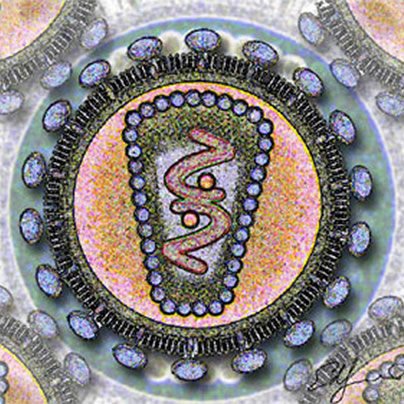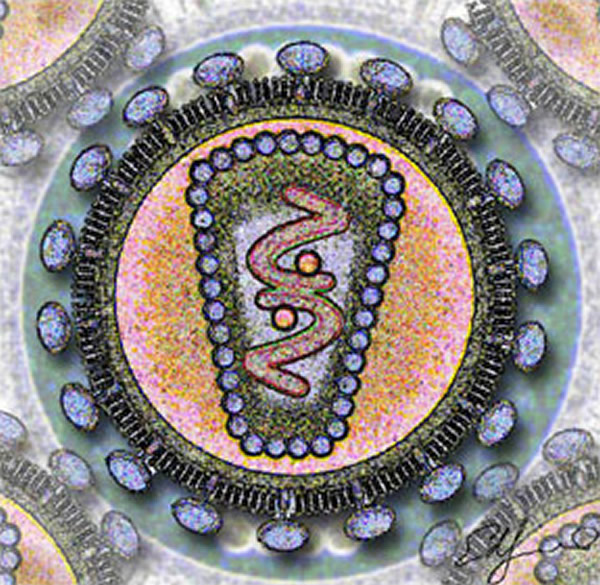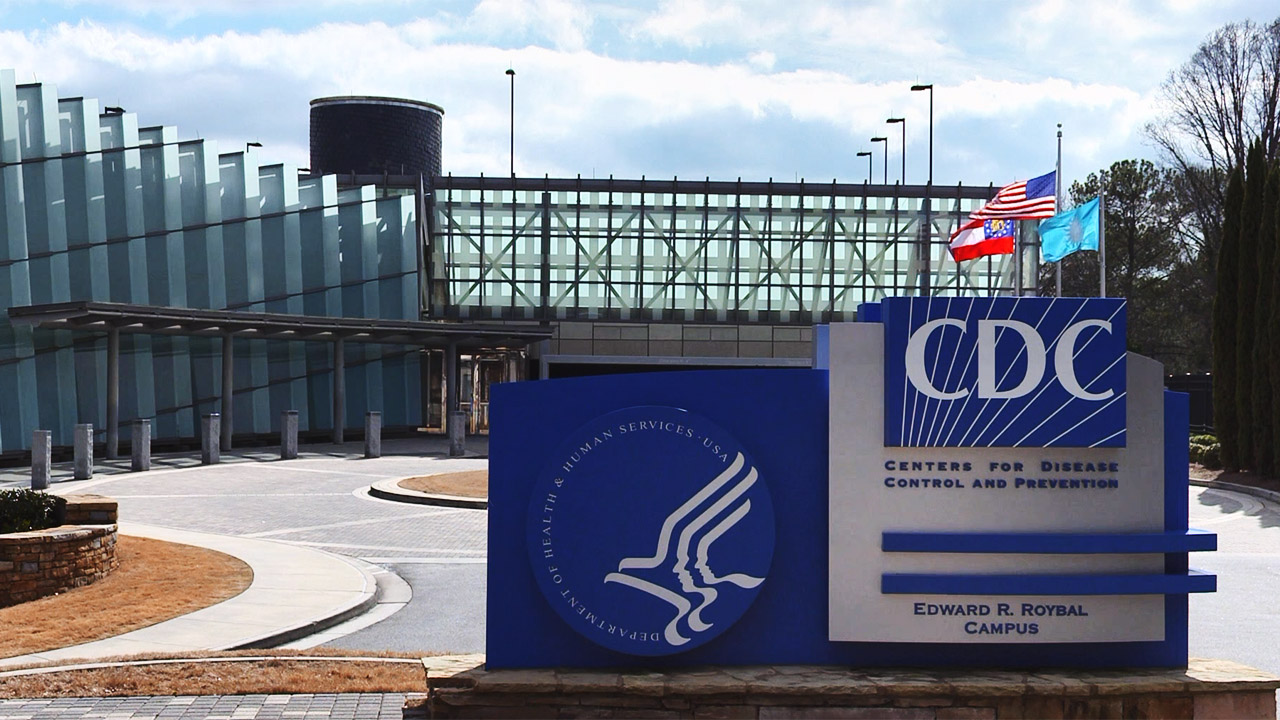Health
Scientists to focus on factors that prevent AIDS cure
Fauci says conference to ‘galvanize’ around theme of small advances


Researchers say the anti-retroviral drugs that keep people with HIV healthy by preventing the virus from replicating currently cannot reach relatively low levels of virus that are capable of becoming dormant and embedded in “reservoirs” within certain cells in the human body.
Many of the scientists from around the world attending the International AIDS Conference in Washington, D.C., scheduled to convene on Sunday will examine what researchers say is the leading stumbling block to a cure for AIDS.
Highly effective AIDS drugs have reduced the viral load in people with HIV to undetectable levels, keeping them healthy and enabling most to live a full lifespan as long as they stick to their drug regimen.
But researchers say the anti-retroviral drugs that keep people with HIV healthy by preventing the virus from replicating currently cannot reach relatively low levels of virus that are capable of becoming dormant and embedded in “reservoirs” within certain cells in the human body.
“Even after all of the body’s active HIV has been eliminated, a missed dose of anti-retroviral drugs can allow the hibernating virus to emerge and ravage its host all over again,” according to an article in the July 17 issue of Science Daily.
The conference is scheduled to take place July 22-27 at the Washington Convention Center.
Dr. Anthony Fauci, director of AIDS research at the U.S. National Institutes of Health, told the Washington Blade on Tuesday that dozens of scientific presentations at the conference will likely focus on themes that address incremental steps, with the ultimate goal of developing an AIDS vaccine or a cure.
Fauci is scheduled to deliver the opening address at the conference on Monday. He said no major scientific breakthroughs are expected to emerge from the event.
“So rather than there being meetings where there are three or four scientific breakthroughs there really is a sort of consolidation or galvanization around a theme,” he said. “The theme of this meeting is “Turning the Tide Together.”
He said the title of his opening address is “Ending the AIDS Epidemic From Scientific Advances to Public Health Implementation.”
“And what you’re going to hear throughout the meeting is various iterations in different regions, in different populations, different demographic groups about the challenges – the biological, behavioral and other challenges – of getting that done,” Fauci said.
The conference website, aids2012.org, includes a list of all of the scientific papers scheduled to be presented at various panels and sessions as well as non-scientific sessions addressing public policy issues such as HIV prevention and treatment issues.
“The cure thing is going to be very basic, like understanding the nature of the HIV reservoir,” Fauci said. “Are there ways that we can eradicate that reservoir? If we can’t eradicate it are there ways we can either boost up the immune system or modify the host so that their cells are not susceptible to being infected?”
Jose Zuniga, president of the International Association of Physicians in AIDS Care, which is sponsoring several conference-related events, said other leading topics expected to be addressed by AIDS researchers are use of AIDS drugs as a means of preventing HIV infection and the use of aggressive treatment programs as another mode of prevention.
The decision this week by the U.S. Food and Drug Administration to approve the use of the AIDS drug Truvada as an HIV prevention pill is expected to draw the attention of many conference participants. (See related story on Page 22.)
Health
UNAIDS to commemorate Zero Discrimination Day’s 10th anniversary
UN agency urges global action to protect human rights

As the world marks the 10th anniversary of Zero Discrimination Day; UNAIDS is sounding the alarm on the increasing threats to human rights, calling for renewed efforts to protect the rights of all individuals as a fundamental step towards ensuring health for everyone.
Established by UNAIDS a decade ago, Zero Discrimination Day aims to promote equality and fairness regardless of gender, age, sexuality, ethnicity or HIV status. The progress achieved over the past years is now in jeopardy, however, due to rising attacks on the rights of women, LGBTQ people and other marginalized communities.
UNAIDS Executive Director Winnie Byanyima emphasized the critical link between protecting human rights and safeguarding public health.
“The attacks on rights are a threat to freedom and democracy and are harmful to health,” she said in a press release. “Stigma and discrimination obstruct HIV prevention, testing, treatment and care and hold back progress towards ending AIDS by 2030. It is only by protecting everyone’s rights that we can protect everyone’s health.”
Despite challenges, there has been notable progress.
At the onset of the AIDS pandemic more than 40 years ago, two-thirds of countries criminalized consensual same-sex sexual relations. They are now decriminalized in two-thirds of countries. An additional 38 countries around the world have pledged to end HIV-related stigma and discrimination, contributing to positive changes that include 50 million more girls attending school compared to 2015.
To sustain and enhance these advancements; UNAIDS urges global support for women’s rights movements, LGBTQ rights, racial justice, economic justice, climate justice and peace initiatives. By standing with communities advocating for their rights, the U.N. aims to reinforce the collective effort towards a more inclusive and equitable world.
Zero Discrimination Day is observed on March 1.
Events and activities that will take place around the world throughout the month will serve as reminders of the essential lesson and call to action: Protecting everyone’s health is synonymous with protecting everyone’s rights.
“Through upholding rights for all, we will be able to achieve the Sustainable Development Goals and secure a safer, fairer, kinder and happier world — for everyone,” said Byanyima.
Health
New CDC report finds transgender women at higher risk for HIV
More than 1,600 people in seven cities surveyed

The Centers for Disease Control and Prevention issued a new study report this week that revealed that restricted by employment and housing discrimination and lack of access to needed gender-affirming healthcare for transgender women increasing the risk of contracting HIV.
Researchers reviewed data from a 2019-2020 survey, the National HIV Behavioral Surveillance Among Transgender Women, which found that the demographics of HIV/AIDS have been disproportionally high, especially among Black and Latina trans women, who had experienced employment and housing discrimination coupled with lack of access to gender-affirming healthcare.
The Jan. 25 Morbidity and Mortality Weekly Report was based on data studies of more than 1,600 trans women in seven major urban locales. Participants from Atlanta, Los Angeles, New Orleans, New York, Philadelphia, San Francisco and Seattle were chosen by referrals from people and community-based organizations who knew or were part of the local population of trans women.
The study’s researchers noted: “Employment discrimination occurs at the overlapping nexus of poverty, homelessness, incarceration, health insurance, disability, food insecurity and survival sex work. These issues are interconnected.”
The study stated that trans women’s inability to access quality healthcare, including gender-affirming treatment or access to PrEP, and can expose them to potential incarceration as many turn to “survival sex work” and violence, which increases the risk of contracting HIV.
The study’s author’s pointed out: “When economically marginalized transgender women are refused employment, this refusal cyclically contributes to economic hardships. This analysis …demonstrates the importance of transgender women working and living with dignity and without fear of unfair treatment.”
Health
A Whole New Perspective on Well-Being
The Mather’s team recognizes that everyone’s wellness journey is completely unique to their life experiences and influences.

It’s easy to spot the distinctive, elegant silhouette of The Mather, a Life Plan Community for those 62+ opening this spring in Tysons, Virginia. What is not apparent to the naked eye is The Mather’s unique wellness philosophy, which is literally built into the community.
The Mather’s team recognizes that everyone’s wellness journey is completely unique to their life experiences and influences.
Nature is one of the important factors that contribute to well-being. So The Mather is incorporating biophilic design—a design approach to facilitate access to nature or things that replicate natural patterns. This can include interior spaces with sightlines to a garden, choosing natural wood and stone as interior materials, or incorporating fragrant flowers and plants indoors to spark memories and provide tactile opportunities such as gardening.

“Providing biophilic design within interior settings connects residents to the natural world,” says Mary Leary, CEO and President of Mather, the organization behind The Mather. “Research shows that a connection to nature provides positive benefits to mental states and overall well-being. At The Mather, biophilic design is the intersection of buildings and programs with nature in an urban setting.”
“The Mather is attracting a diverse group of older adults,” says Mary. “As a result, we aim to incorporate wellness practices from around the world, including Wyda movement theory of the Celtic Druids, which helps people achieve harmony with nature and contentment through mindfulness.” This holistic regenerative approach is similar to Qi Gong and yoga, while born in a different part of the world. Mather Institute has a special focus on mindfulness to support older adults’ practice of present moment awareness, which can lead to increased overall well-being, compassion, and joy.
A very different example of a wellness offering at The Mather is the Gharieni Welnamis spa wave bed, which uses computer-controlled vibrational therapy and audio frequencies to train the brain to relax. “The bed increases mindfulness, concentration, and creativity—all of which support our mission of creating Ways to Age Well,SM” says Mary.
These and other personalized ways to wellness will ensure that residents of The Mather can choose from seemingly countless ways to focus on their well-being. In other words, the sky’s the limit!
-

 District of Columbia2 days ago
District of Columbia2 days agoReenactment of first gay rights picket at White House draws interest of tourists
-

 District of Columbia2 days ago
District of Columbia2 days agoNew D.C. LGBTQ+ bar Crush set to open April 19
-

 Arizona2 days ago
Arizona2 days agoAriz. governor vetoes anti-transgender, Ten Commandments bill
-

 Africa4 days ago
Africa4 days agoUgandan activists appeal ruling that upheld Anti-Homosexuality Act












